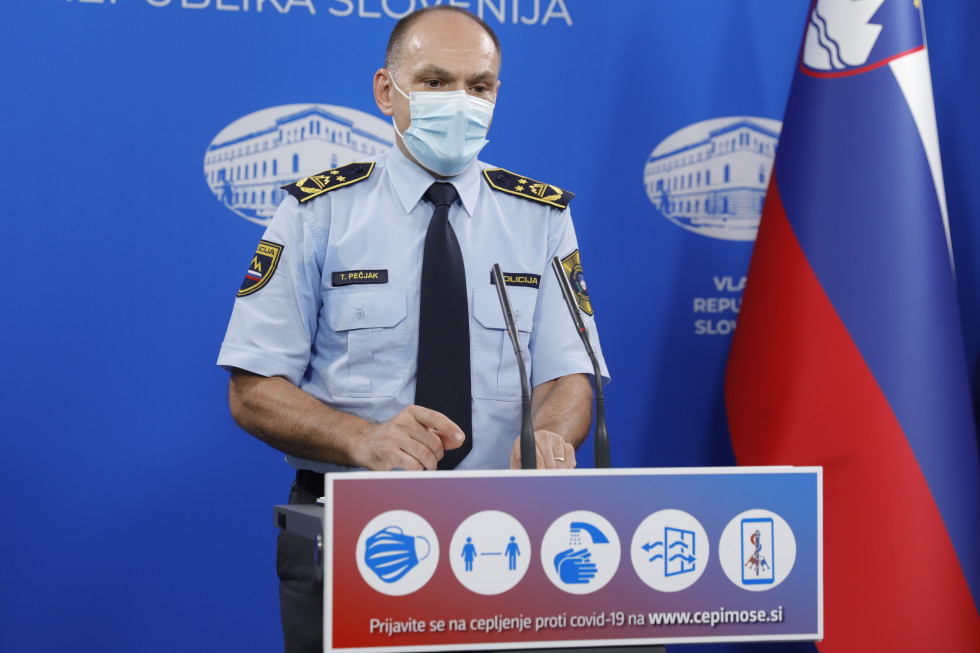Check the border crossing requirements before travelling

Deputy Director General of the Police Tomaž Pečjak | Author Ukom
The epidemic situation in Slovenia has been improving. Yesterday, a total of 2,038 PCR tests and 17,715 rapid antigen tests were conducted, with 50 new infections confirmed. According to the National Institute of Public Health (NIJZ), there are still less than 1,200 active infections across the country.
The 14-day incidence, i.e. the number of confirmed infections per 100,000 people in the last 14 days, decreased slightly, to 56 today (66 yesterday). The average number of confirmed cases in the last 7 days also continues to decline and today stands at 59 (69 yesterday).
“Vaccination against COVID-19 continues”, said Maja Bratuša at the beginning of the press conference. To date 46 percent of people older than 18 have received their first dose of vaccine and 35 percent have been fully vaccinated. In the overall population, the proportion of those vaccinated with the first dose and those fully vaccinated was 38 and 29 percent, respectively.
To make vaccination even more easily accessible to all, mobile vaccination units will be deployed throughout Slovenia. Mobile units have been deployed today in two locations in Ljubljana: in the Tivoli Park and Vilharjev podhod, as well as in Maribor and in Ptuj.
EU Digital COVID Certificate will facilitate travel across the EU
Before going on a trip, everyone should check the current situation and the trend of the epidemic in the specific country concerned, as the head of the consular sector pointed out. It should be borne in mind that reaching a good situation on Covid not achieved as a one-off, but is something that has to be maintained. Everyone should contribute to this. The most effective way to do thisis vaccination, stressed Andrej Šter, Head of the Consular Sector at the Ministry of Foreign Affairs.
The EU Digital COVID Certificate will also significantly facilitate travel, as the EU Member States have agreed on uniform conditions for crossing borders. There are few examples of countries reaching an agreement like this worldwide, stressed Šter.
The Deputy Director General of the Police, Tomaž Pečjak, spoke in detail about the current conditions for entering Slovenia. On 18 June the Government issued an ordinance changing the conditions for entry into Slovenia to curb and control the spread of COVID-19. The ordinance will be in force until 27 June 2021 and introduces the following new requirements:
- the orange and the green list of countries;
- all countries that are not explicitly listed on the green, red and dark red lists are classified as orange;
- the validity of the negative PCR test results is extended to 72 hours from taking the swab, while the validity of the negative rapid antigen test results remains 48 hours;
- persons arriving in Slovenia from red and dark-red list countries are required to submit a PCR test result, whereupon they are ordered to quarantine at home. A person will not be required to provide a PCR test and quarantine at home if they present a certificate of vaccination, a certificate of recovery or a certificate confirming that they have recovered and have been vaccinated.
Pečjak noted that individuals arriving from a green area are required to prove that they had stayed in such an area, otherwise they will be considered to have arrived from an orange or red list area. He also noted that the introduction of the EU Digital COVID Certificate will facilitate travel across the EU, but that one should nevertheless be prepared for lengthier border control procedures, particularly as compared to the period before the epidemic.

